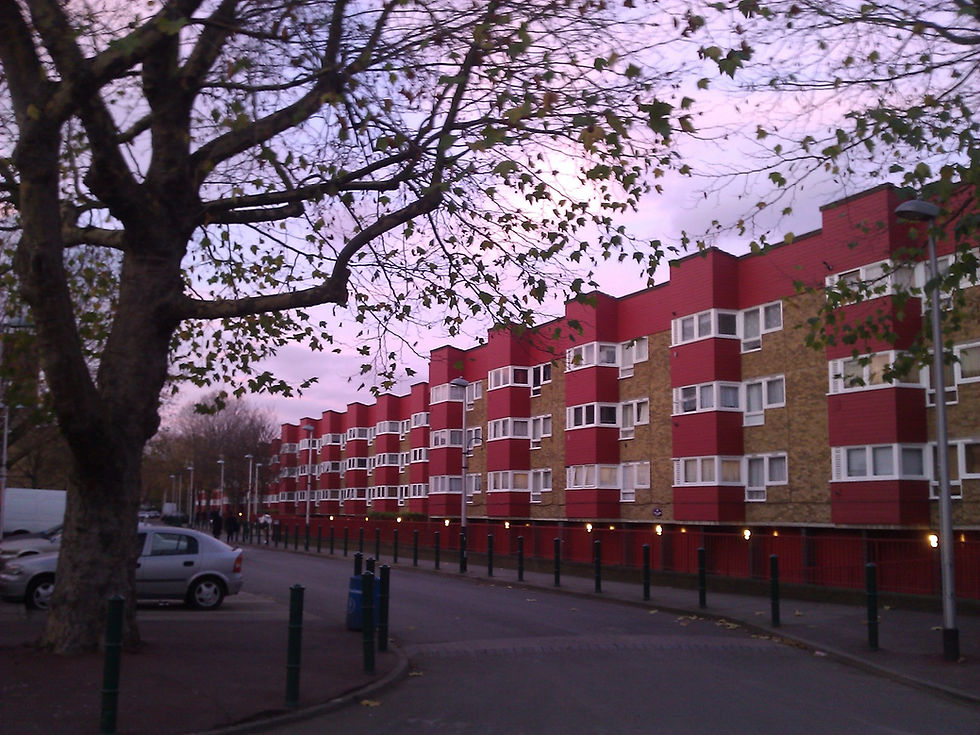Estimates vs Quotes - Why The Difference Really Matters
- Lisa Marie Hindle
- Jul 4, 2025
- 5 min read

At Upcycle Interiors, we’ve noticed a growing concern in the industry - and it’s one we take very seriously. More and more stories are emerging of customers being caught out by a misunderstanding between an estimate and a quote. It might sound like a small difference, but in reality, it can mean the difference between a stress-free project and a costly fallout.
Let’s break it down, the way we see it - with no fluff and no grey areas.
What Is an Estimate?
An estimate is just that - a ballpark figure. It gives the customer a rough idea of how much a job might cost, often before all the details are available. It’s not legally binding. It doesn’t promise anything. It simply says, “Based on what we know right now, the cost might be around this much.”
An estimate is:
Not legally binding
Based on limited information
Subject to change
Not a commitment
Not detailed
Estimates are useful tools for budgeting in the early stages of planning. But they’re not something you should ever base a final agreement on.
An estimate can be very useful, especially for bigger projects that would take a lot of time to calculate and quote, so can be handy in the initial stages of a substantial project. This could be a written document or written in an email to give a ballpark figure. Based on information supplied such as photographs or technical drawings, we would do a desktop evaluation. Once this is agreed in principal based on the customer's expectations and budget, we would then take it to the next stage - an on-site visit or consultation - and then we would write the full, detailed quotation which can sometimes take an entire day or longer on large projects.
For example, in our years of trading, we’ve only ever proceeded on the basis of an estimate once. It was for a kitchen installation where the design hadn’t yet been finalised. Due to time constraints, we pressed ahead. The project ended up taking one extra day. We absorbed the additional cost ourselves and didn’t pass it on to the customer - because we recognised the risk we were taking and felt it was only fair (We had already worked on numerous projects with the customer and had built up a good deal of trust with them, so we continued on with the project as we were happy to work with them and it seemed pointless to stop and write more paperwork at that point!). But this is the exception, not the rule.
So, What’s a Quote?
A quotation is a detailed, legally binding document that sets out exactly what’s included in the project, how much it will cost, and the terms under which the work will be carried out. It’s not just a number on a page - it’s a contract and a commitment.
A quotation is a proper, formal document that outlines:
What’s included
What’s excluded
How much it will cost
The terms of the job
What happens if the scope changes
Whereas an estimate might say, “Extension: £20,000”, a quote will say:
The extension will include X, Y, and Z
The total cost is £20,000
These are the terms, including contingencies for unforeseen issues
If the scope changes, a new quote or change order will be issued
Unlike an estimate, a quote is legally binding and have a contract attached to them. Once accepted, it locks in the price - so the builder can’t turn around and add on surprise costs unless something outside of the agreed scope arises.
If something unexpected does come up, a new quote or written change order should be issued, discussed, and agreed upon before any extra work begins.
A quote protects both you and the builder. It stops costs from spiralling. It defines expectations. And most importantly - it gives you a piece of paper you can rely on.
Why You Should Never Proceed on an Estimate Alone
We’ve heard too many horror stories of customers being given a typed-up estimate - sometimes even looking quite formal - and assuming that it’s as good as a quote. It’s not.
If you go ahead based on an estimate, the builder is under no obligation to stick to the price. They could finish the job and say, “Actually, it cost £30,000, not £20,000” - and legally, they wouldn’t necessarily be in the wrong. It’s a slippery slope, and one that’s easily avoided.
If a builder won’t give you a fixed price quote - unless there are genuine unknowns involved - that should be a red flag. In our opinion, experienced tradespeople should be able to work out the time, materials, and costs involved in most standard jobs. Sure, we build in some contingency, but we know the difference between five bricks and five million.
What We Do at Upcycle Interiors
We’ve taken things one step further. Every quote we issue isn’t just a price - it’s a contract.
Here’s how we do it:
You receive a detailed written quotation, including scope of works, exclusions, and terms.
You can sign the quote or pay a deposit - either is taken as acceptance.
The quote becomes a binding agreement.
We attach a clear set of terms and conditions, covering everything from access issues to scope changes to project timelines.
This means that before a single tool comes out, everyone is on the same page. No surprises. No awkward conversations. No crossed wires.
What About Small Jobs?
For smaller handyman-type jobs, or tasks where the scope is flexible, we sometimes use a Schedule of Rates instead. This simply outlines our hourly rates and charges, which gives customers a fair and transparent way to pay for time spent without needing a full written quote.
We use this approach:
When the customer provides materials (so we can't control the job duration)
When the scope is likely to change (e.g., you ask us to hang 5 pictures, but later add 2 more and a heavy mirror)
When the work is minor and writing a full quote would be overkill - it would take us more time to write up the quotation which would have to be added to the project cost.
Even then, everything is recorded, and you’ll receive a clear breakdown of what you’re paying for.
Final Thoughts
All too often, the root of conflict between customer and contractor lies in the estimate vs. quote misunderstanding. If expectations aren’t clearly laid out at the start, it’s no surprise that things unravel down the line.
At Upcycle Interiors, we’ve never had a dispute with a customer over pricing. That’s not luck - it’s because we lay solid foundations from the start with clear, fixed-price quotations that double as contracts.
If your project is important to you, we urge you: never proceed based on an estimate alone. Always ask for a written, detailed quote. It’s your protection - and it’s the mark of a professional.
Further Reading:




Comments